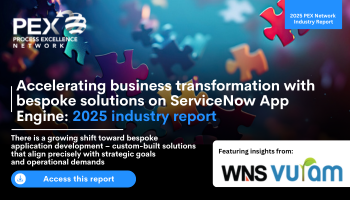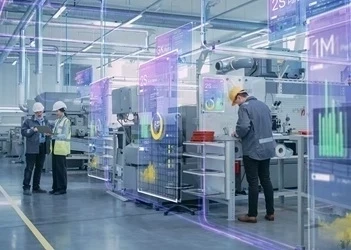Celonis files updated complaint in SAP antitrust case
Updated complaint builds on Celonis’ claims with additional evidence emphasizing the history and impact of SAP’s “broken promises” of free access to data
Add bookmark
Celonis has filed an updated complaint in its ongoing antitrust dispute against SAP after a US court partially dismissed its claims in June.
The updated complaint builds on Celonis’ previous arguments with additional evidence emphasizing the history and impact of SAP’s “broken promises” of free access to data, the impact of SAP’s actions on artificial intelligence (AI) innovation across the enterprise technology industry and more detailed antitrust claims including tying, bundling and predatory pricing.
In over 100 pages of detail, Celonis claims that SAP has carried out “egregious and unlawful” attempts to dominate the process mining market and stifle competition, breaking years of promises to customers, regulators and the market.
Join the PEX Network community

Don't miss any news, updates or insider tips from PEX Network by getting them delivered to your inbox. Sign up to our newsletter and join our community of experts.
Learn MoreCelonis’ updated SAP complaint
“After rejecting SAP’s request to dismiss the suit in its entirety, the court offered Celonis an opportunity to provide more evidence to support additional claims against SAP,” said a Celonis spokesperson. “The complaint adds a new claim against SAP to hold it accountable for those promises and describes how SAP, by restricting access to customers’ enterprise data, threatens to chill AI innovation across the entire enterprise technology industry.”
If left unchecked, SAP’s actions threaten to eliminate competition, resulting in increased prices, less innovation and fewer choices for customers, the spokesperson added.
“As the case progresses to trial, Celonis is committed to ensuring our customers retain their right to work with the technology providers of their choice and that the market remains fair, transparent and open to innovation.”
Why did Celonis sue SAP?
In March, process mining provider Celonis claimed that SAP has “deliberately sought to exploit its market power” over its large, entrenched enterprise resource planning (ERP) customer base by imposing new policies and restrictions in an attempt to destroy Celonis’ business.
Celonis also accused SAP of engaging in increasingly egregious conduct targeting its customers to coerce them into using Signavio, SAP’s own process mining offering. Celonis sought an injunction prohibiting SAP’s “illegal conduct,” monetary damages and all other legal and equitable relief available under law.
“This case is about SAP’s campaign of anticompetitive conduct designed to exclude third-party application and technology providers from its dominant ecosystem, including its acts of tortious interference and false advertising in furtherance of that campaign, in contravention of the promises SAP has made to the market and regulators,” the lawsuit read.
In June, SAP said it would not interfere with Celonis data extractor to enable customers to access their own data as the antitrust litigation case between the two companies continued. SAP also agreed not to impose any additional fees or licenses on customers for such use, until the case has been resolved.
Accelerating business transformation with bespoke solutions on ServiceNow App Engine

Today, off-the-shelf software solutions offer diverse features that enable vast opportunities to implement and maintain business transformation. However, in some circumstances, capabilities lack the flexibility and specificity required to address the unique challenges and workflows of individual organizations. As a result, there is a growing shift toward bespoke application development – custom-built solutions that align precisely with strategic goals and operational demands.
Download this report to explore how enterprises can harness the power of custom applications to drive meaningful transformation. With the growing adoption of low-code platforms like ServiceNow App Engine, organizations are building custom applications faster and with greater control. By empowering both IT professionals and citizen developers to build tailored solutions, organizations can significantly reduce time to value while maintaining control over quality and compliance.
Download Now























